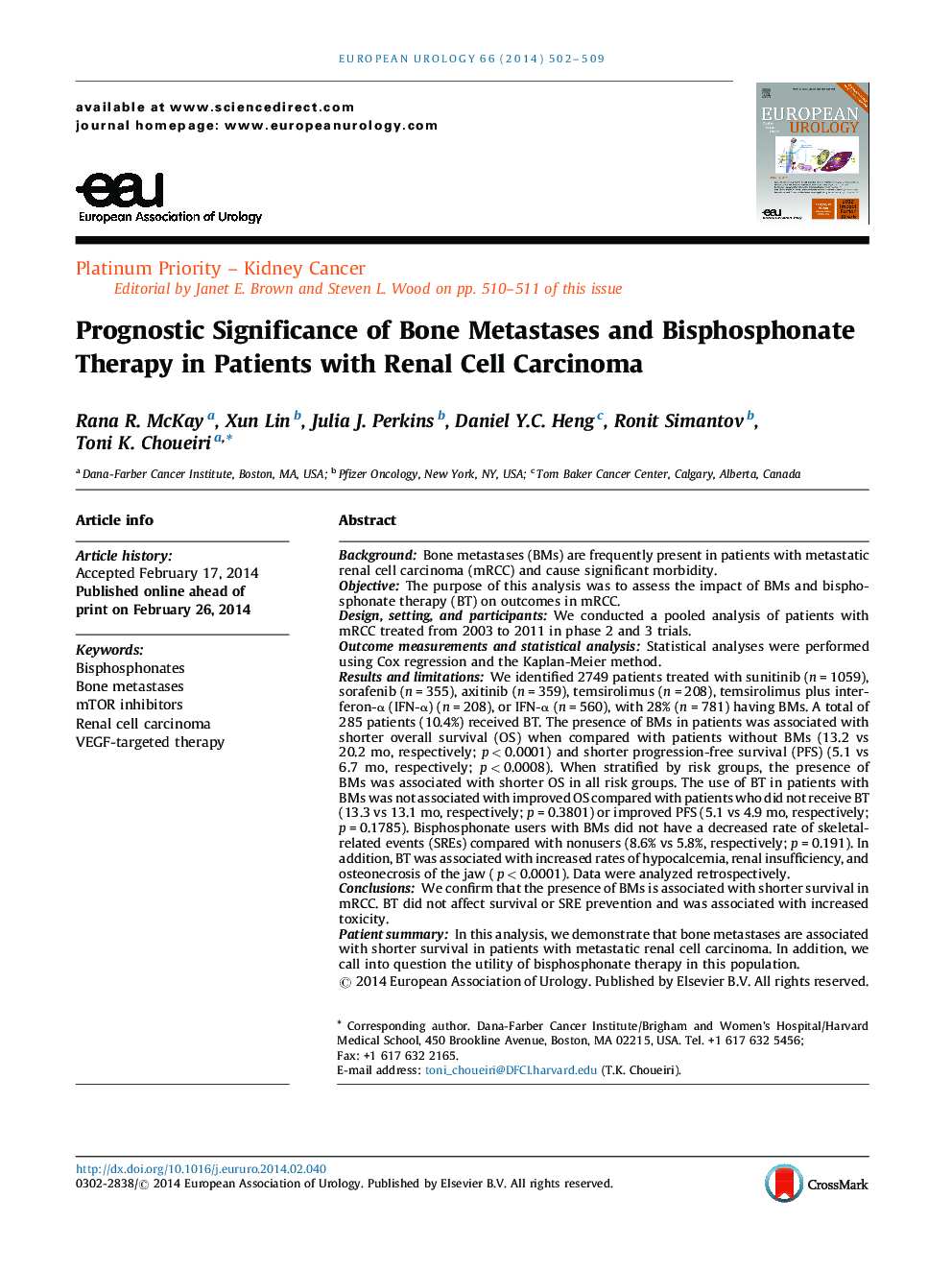| کد مقاله | کد نشریه | سال انتشار | مقاله انگلیسی | نسخه تمام متن |
|---|---|---|---|---|
| 6176954 | 1253070 | 2014 | 8 صفحه PDF | دانلود رایگان |
BackgroundBone metastases (BMs) are frequently present in patients with metastatic renal cell carcinoma (mRCC) and cause significant morbidity.ObjectiveThe purpose of this analysis was to assess the impact of BMs and bisphosphonate therapy (BT) on outcomes in mRCC.Design, setting, and participantsWe conducted a pooled analysis of patients with mRCC treated from 2003 to 2011 in phase 2 and 3 trials.Outcome measurements and statistical analysisStatistical analyses were performed using Cox regression and the Kaplan-Meier method.Results and limitationsWe identified 2749 patients treated with sunitinib (n = 1059), sorafenib (n = 355), axitinib (n = 359), temsirolimus (n = 208), temsirolimus plus interferon-α (IFN-α) (n = 208), or IFN-α (n = 560), with 28% (n = 781) having BMs. A total of 285 patients (10.4%) received BT. The presence of BMs in patients was associated with shorter overall survival (OS) when compared with patients without BMs (13.2 vs 20.2 mo, respectively; p < 0.0001) and shorter progression-free survival (PFS) (5.1 vs 6.7 mo, respectively; p < 0.0008). When stratified by risk groups, the presence of BMs was associated with shorter OS in all risk groups. The use of BT in patients with BMs was not associated with improved OS compared with patients who did not receive BT (13.3 vs 13.1 mo, respectively; p = 0.3801) or improved PFS (5.1 vs 4.9 mo, respectively; p = 0.1785). Bisphosphonate users with BMs did not have a decreased rate of skeletal-related events (SREs) compared with nonusers (8.6% vs 5.8%, respectively; p = 0.191). In addition, BT was associated with increased rates of hypocalcemia, renal insufficiency, and osteonecrosis of the jaw (p < 0.0001). Data were analyzed retrospectively.ConclusionsWe confirm that the presence of BMs is associated with shorter survival in mRCC. BT did not affect survival or SRE prevention and was associated with increased toxicity.Patient summaryIn this analysis, we demonstrate that bone metastases are associated with shorter survival in patients with metastatic renal cell carcinoma. In addition, we call into question the utility of bisphosphonate therapy in this population.
Journal: European Urology - Volume 66, Issue 3, September 2014, Pages 502-509
